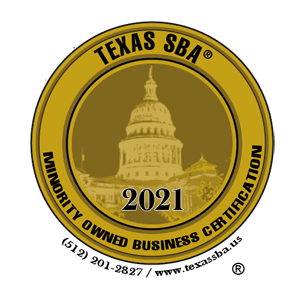Hiring a remote employee for work can be a daunting task to handle for any position. Not so many people know how to hire remotely because it is difficult to judge or identify if a person is good, especially their work ethic, based only on their resume, various meetings, or basic references. These challenges become magnified when hiring a remote person to work for you. Now that there are no physical interviews, you may be making your decision to hire the person based on only the qualifications and traits you could see during the interviews.
Even so, similar to employing in-office staff, remote employees need some additional considerations. If you wish to know how to employ remote employees that will be effective, it is essential to attract the right talent and pose the correct questions during the interviews to get the best remote hires possible. While it can take time to truly know someone’s aptitude for the position, you can boost your odds of employing the best remote people by considering the below tips;
Analyze Your Business
Are you sure you want to hire a remote person for the job? Is your business set to succeed by using remote work? Well, before you can hire a remote employee, in-office or freelance, it is important to ask yourself these questions and review your policies for remote hiring and the description of the job position.
Even though remote working is all about flexibility and freedom, the importance of hiring the right person cannot be dismissed. Therefore, your business must have practice policies in place to impose work expectations concerning the evaluation and performance of each worker. It offers the employees clear guidance and expectations for the organizations to analyze metrics and measure outcomes and employee productivity.
Reasons for Hiring Remote Workers
During the application process, remember that you are not just searching for a candidate who is good for the job but could be disciplined to handle it remotely. This means that the remote employee should have several additional sets of skills to successfully manage the virtual position, especially if it is to hire a remote sales team.
Check for Remote Skills
While hiring an employee, know that not all professionals are set for remote jobs. To successfully hire the best remote employee, ask about their skills, most of which correspond to a remote position. Here are some of the skills you can consider;
- Proper time management
- Ability to work remotely
- Well-organized person
- Clear and concise communication
- Proactive
- Good communication skills
- Tech-savvy
- Outgoing
In between the interview and the candidate’s resume, you should figure out if the applicant has the necessary skills to occupy a remote position in your business.
Experience of the Candidate
It is even better if any of the candidates have some experience working as remote employees. At least he has a grasp of what it takes to handle things whenever under pressure to deliver. Most successful remote employees function productively under very minimal supervision and understand most challenges, including focus, maintenance, time management, etc.
Even so, lacking the necessary experience is not entirely a factor in disqualifying some candidates with other skills. Experience is built over time. You can check their resumes to see if they have the patience to learn and use other skills and if they are still qualified for remote staffing.
Know Your Candidates
During the changes to the job descriptions when hiring an employee, there is also a need for upgrading the interview questions. Make a list of specific questions about the candidates stressing the policies of your business. Things such as their availability, management skills, and response to meetings. In the list, it covers areas such as;
- Your remote work policies and confirm if they can stick to it
- Enquire about their ways of handling things when either the internet or power is out
- Do they have software skills?
- Ask what motivates them to apply for the job
- Their project management and collaboration skills
Communication Skills
Although it is not a must for remote employees to be fluent in their preferred language, they should at least communicate clearly and pass their information well in both written and oral format. Consistently communicating poorly will affect the passage of messages between employees. So, if you see any inconsistency in the proper choice of words and deterring messages, then the candidate does not possess quality communication skills.
For “Wrong” Motives
Lastly, during the interview session, their answers are key while asking the candidate about their reasons for applying for the job. It tells a lot about a candidate. If their answers are to skip commuting or working in a quiet setting in favor of delivering quality work and being timely, they understand remote work. However, if they talk about doing laundry while working etc., providing very irrelevant answers to the questions, then they are not for you.
In conclusion, successfully hiring a remote employee can be a time-consuming task. However, if done right, it can only take a few sittings to identify the best candidate. Following these steps can help you to know which one fits and who does not. This is not the end of the list of things to check. More can be found here https://recruitee.com/articles/hire-the-right-person, but we hope what we have provided boosts your search for the best people for remote jobs.






